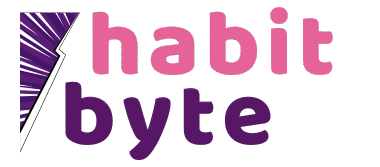The Benefits and Positive Effects of Stress Management: 12 Simple Habits You Can Start Today
Stress isn’t the enemy, staying stuck in stress mode is. With a few practical habits, you can steady your energy, sharpen focus, sleep deeper, and feel more resilient in your body. Use this list to choose one or two actions you can start today, then build from there.
Quick wins: What stress management improves
- Mind and mood: More calm, focus, and patience.
- Body: Lower tension and steadier heart rate.
- Performance: Clearer decisions and fewer mistakes.
- Sleep: Easier to fall and stay asleep.
- Appearance: Healthier skin and support for hair growth over time.
1) Breathe on purpose with 4×4 box breathing
When stress spikes, your breath gets shallow; box breathing signals safety to your nervous system. Inhale through your nose for 4 counts, hold for 4, exhale through your mouth for 4, hold for 4, repeat for one minute. Most people feel calmer within 3–5 rounds.
2) Use 2-minute resets between tasks
Micro-breaks prevent stress from snowballing and protect your focus. Stand, roll your shoulders, sip water, and look out a window for 60 seconds to relax your eyes. Say, “Reset, next right step is ___,” to reorient your brain with intention.
3) Reframe your self-talk
Your words coach your nervous system. Swap pressure for support: “Everything is on me” becomes “I can do the next right thing,” and “This has to be perfect” becomes “Done is better than perfect.” Clear, kind language reduces urgency and boosts follow-through. Read our guide to create custom plan for managing stress.
4) Protect sleep like a meeting
Sleep is your nightly stress reset, so treat it as non-negotiable. Set a wind-down alarm 60–90 minutes before bed, dim lights, and park your phone outside the bedroom. Aim for a cool, dark room and a simple ritual like a shower, tea, or light reading.
5) Move your body in short bursts
Movement burns off stress hormones and lifts mood, even in tiny doses. Try 5–10 minutes of brisk walking, a set of squats, or a quick stretch between calls. Consistent mini-moves beat the occasional long workout for stress relief.
6) Eat stress management foods daily
Balanced meals steady blood sugar and mood. Prioritize protein, fiber, and healthy fats, then add leafy greens (magnesium), fatty fish (omega‑3s), fermented foods (gut-brain support), berries (antioxidants), and oats or quinoa (slow carbs). A simple rule: pair carbs with protein or fat, apple with peanut butter, crackers with hummus.
7) Tame caffeine and sugar swings
Caffeine on an empty stomach can magnify jitters and crashes. Delay coffee 60–90 minutes after waking, pair it with protein, and switch to tea after noon if sleep suffers. Enjoy sweets after balanced meals to blunt spikes and dips.
8) Set gentle boundaries with simple scripts
Boundaries reduce overwhelm without friction. Try, “I can help for 15 minutes now, then I need to prep for 2 PM,” or, “Happy to take this, what should move to next week?” Clear expectations cut rework and protect your calendar.
9) Stress management for hair loss
Prolonged stress can push more hairs into a resting-shedding phase (telogen), often showing up months later. Daily relaxation (5–10 minutes of breathing or meditation), scalp massage, and nutrient-rich meals with protein, iron, leafy greens, eggs, and fatty fish support regrowth. If shedding is heavy or persists, consult a clinician to rule out iron, thyroid, or nutritional gaps.
10) Try the 10-second SOS for heated moments
When emotions surge, a tiny pause restores control. Plant your feet, unclench your jaw, and label your feeling (“I feel overwhelmed”) to lower intensity. Exhale long through pursed lips, then choose one small action like writing the first sentence or asking for a five-minute pause.
11) Anchor a tiny daily ritual
Consistency beats intensity for stress relief. Attach one calming habit to something you already do: after brewing coffee, take five slow breaths; after lunch, walk outside for seven minutes; before bed, jot three wins. Small rituals compound into big benefits.
12) Run a 7-day experiment
Pick two habits, like box breathing after meetings and adding one stress-supportive food to each meal, and track results. Each day, rate your energy (1–10) and sleep (poor/okay/good), then adjust after a week. Keep what works, swap what doesn’t, and build from your wins.
The takeaway: stress is inevitable, but feeling stuck in it isn’t. Start with one or two habits, protect your sleep and fuel, and use quick resets to calm your system on demand. With a week of consistent practice, you’ll notice steadier energy, clearer thinking, and a calmer, more capable you.
Conclusion
Managing stress isn’t about eliminating pressure, it’s about training your body and mind to recover faster and stay steady under it. Each small practice, whether a one-minute breath, a mindset shift, or a quick reset, teaches your system to return to balance more easily. Over time, these micro-habits compound into real resilience: better focus, calmer reactions, deeper sleep, and energy that lasts. Start with one, stay consistent, and let progress, not perfection, be your goal.
